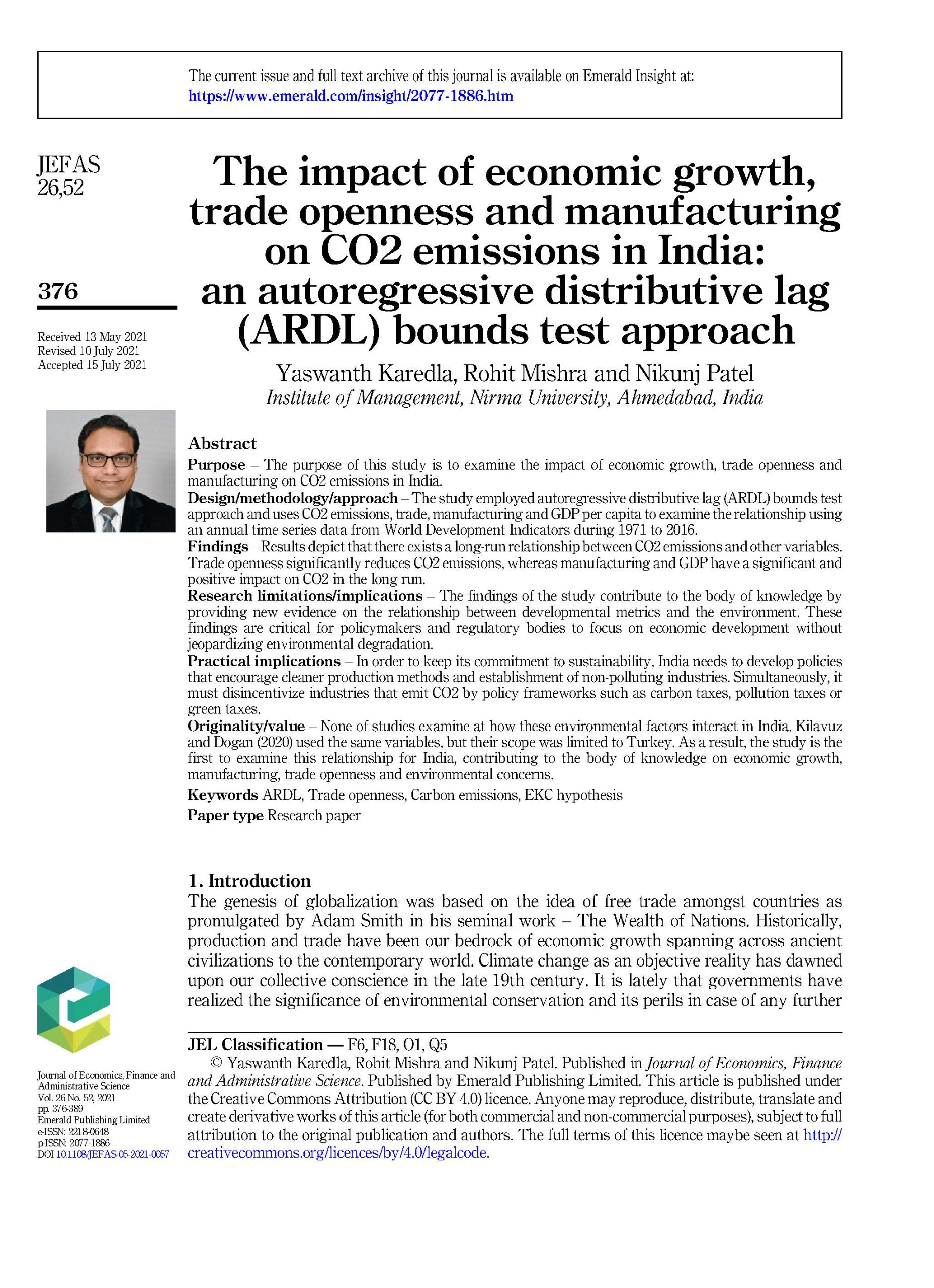Title: The impact of economic growth, trade openness and manufacturing on CO2 emissions in India: an autoregressive distributive lag (ARDL) bounds test approach
Authors: Mr. Yaswanth Karedla, Mr. Rohit Mishra and Prof. Nikunj Patel
The current issue and full text archive of this journal is available on Emerald Insight at:
https://www.emerald.com/insight/2077-1886.htm
Journal of Economics, Finance and Administrative Science
Vol. 26 No. 52, 2021
pp. 376-389
Emerald Publishing Limited
e-ISSN: 2218-0648
p-ISSN: 2077-1886
DOI 10.1108/JEFAS-05-2021-0057
Abstract:
Purpose ? The purpose of this study is to examine the impact of economic growth, trade openness and manufacturing on CO2 emissions in India.
Design/methodology/approach ? The study employed autoregressive distributive lag (ARDL) bounds test approach and uses CO2 emissions, trade, manufacturing and GDP per capita to examine the relationship using an annual time series data from World Development Indicators during 1971 to 2016.
Findings ? Results depict that there exists a long-run relationship between CO2 emissions and other variables.
Trade openness significantly reduces CO2 emissions, whereas manufacturing and GDP have a significant and positive impact on CO2 in the long run.
Research limitations/implications ? The findings of the study contribute to the body of knowledge by providing new evidence on the relationship between developmental metrics and the environment. These findings are critical for policymakers and regulatory bodies to focus on economic development without jeopardizing environmental degradation.
Practical implications ? In order to keep its commitment to sustainability, India needs to develop policies that encourage cleaner production methods and establishment of non-polluting industries. Simultaneously, it must disincentivize industries that emit CO2 by policy frameworks such as carbon taxes, pollution taxes or green taxes.
Originality/value ? None of studies examine at how these environmental factors interact in India. Kilavuz and Dogan (2020) used the same variables, but their scope was limited to Turkey. As a result, the study is the first to examine this relationship for India, contributing to the body of knowledge on economic growth, manufacturing, trade openness and environmental concerns.
Keywords: ARDL, Trade openness, Carbon emissions, EKC hypothesis
Paper type: Research paper
